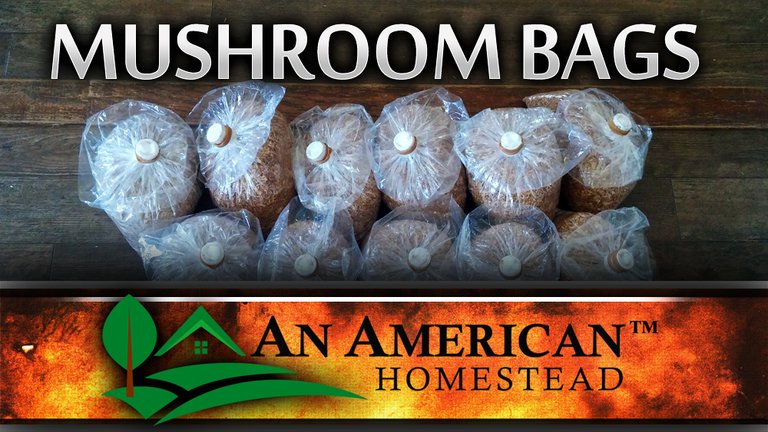
We recently harvested some sawdust block grown grey oyster mushrooms and then used the remaining block to inoculate new substrate to see if we could get additional mushrooms in the weeks to come. There are many ways to grow mushrooms and many of these options are with controlled environmental conditions. But I need a way to grow them simply and off the grid.
Here is a quick post of the process. We started as soon as the first flush harvest of mushrooms was finished from the block.
First, you will notice that I took over the kitchen while Jaimie was tending to chores in the outdoor kitchen. "...as long as you clean up your mess", she said. LOL! So off I go!
Here are my buckets of substrate. I did an approximate 50/50 mix of small hickory wood chips and rice hulls. Both of these materials are abundant in my area. The stainless steel pot in the picture is what I heated the mix in to pasteurize it as to kill any harmful bacteria.
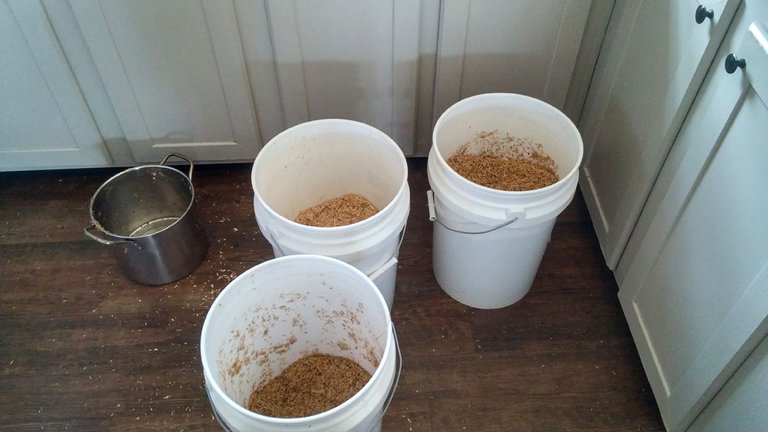
After the mix was sufficiently heated and drained of water, I began to put the mix into bags and included crumbled up parts of the sawdust block to inoculate the bag. I also added crushed Wheaties as additional energy for the mycelium to feed on as it grows in the bag.
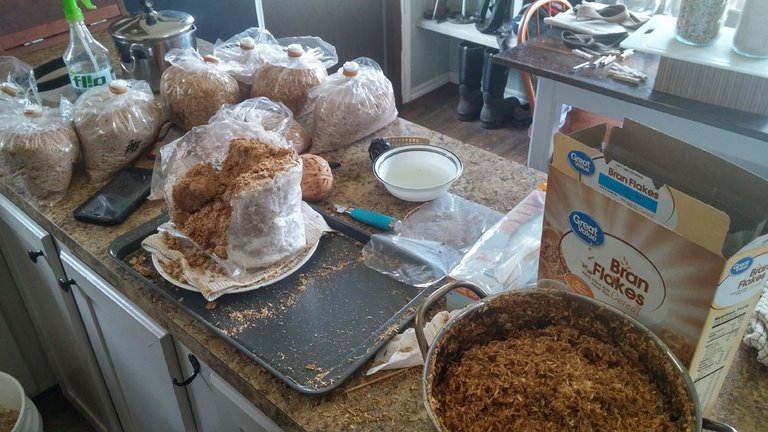
This is a close up of the block that the original mushrooms were growing out from. Normally you can get 2 or 3 more flushes of mushrooms from the block but the longer you wait, the more opportunity you have of introducing harmful bacteria or mold into the block and that would not be good for your new promising batches of substrate bags.
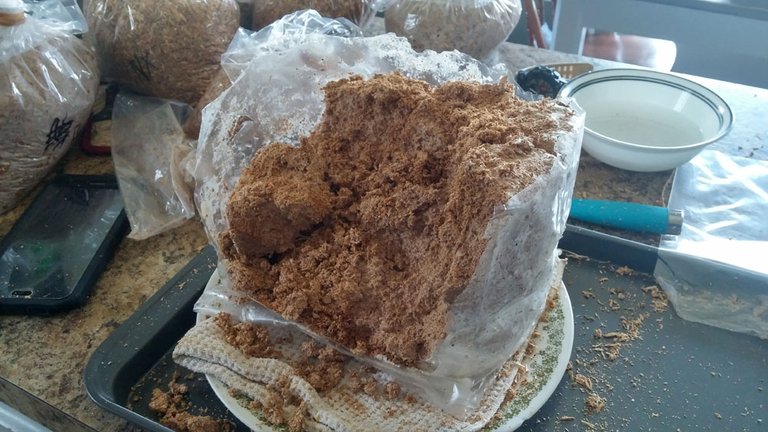
The substrate is loaded into store bought bags that are sealed with a piece of PVC and a cotton ball that allows them to breathe. I learned this trick from a video of people growing mushrooms in Africa. You can buy mushroom growing bags with included cotton filters but I decided to do this first experiment with this method to see if it would work. The video example is at the end of this post.
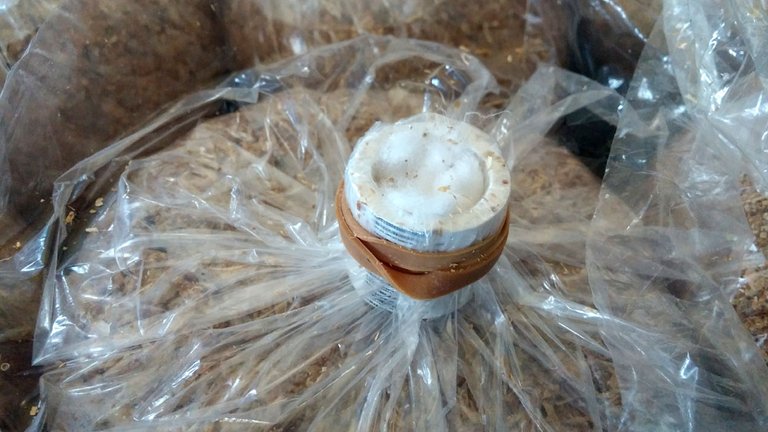
In all, I got 11 bags of substrate put together and 6 half pint jars of grain spawn (not pictured) that can be used to inoculate additional bags later.
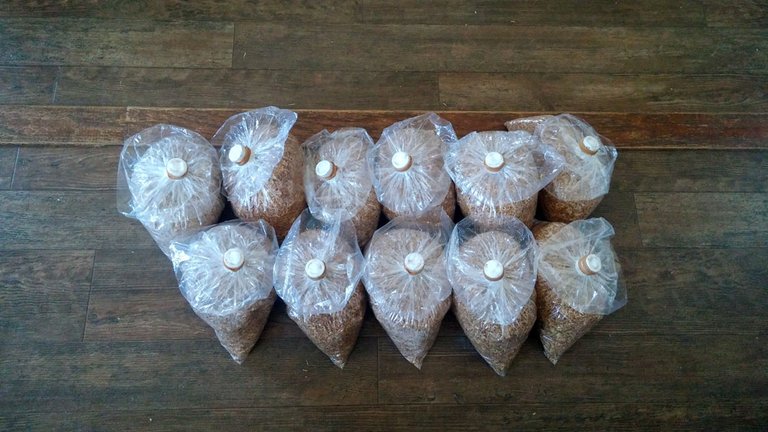
The bags will now be placed into a dark area of the pantry to allow the mycelium to grow and populate the substrate mix. When the bags seem to be fully consumed, we will open the bags up and place them in an area that has partial light to fruit. I'll do a part 2 of this post at that point. Any bags that appear to be contaminated will be thrown out.
I only water heated about half the bags. The other half was water treated with a small amount of Nixall disinfectant that kills bacteria. It's a totally natural product and one we use a lot of the homestead. All the bags were marked so we could record the success and fail rates of the different preparation methods.
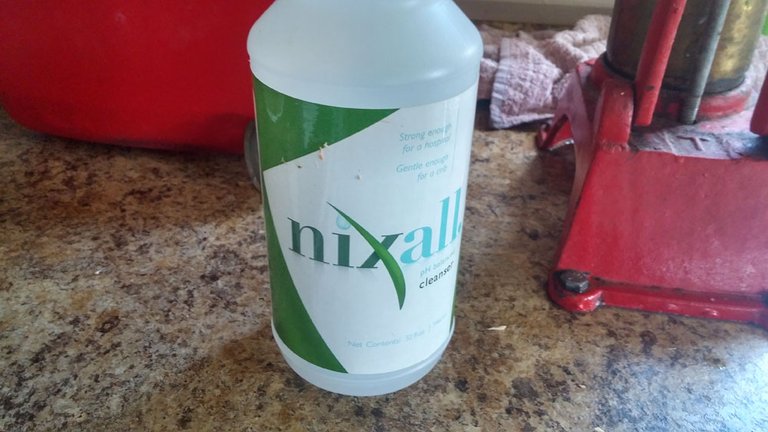
Here is the video that I mentioned earlier in the post. Take a look at how you can still grow mushrooms without "perfect conditions".
ENJOY THE VIDEO!

Visit Us Online: http://AnAmericanHomestead.com
JOIN US ON SOLA (TWITTER REPLACEMENT) FOR MORE HOMESTEAD CONTENT

https://sola.ai/americanhomestead
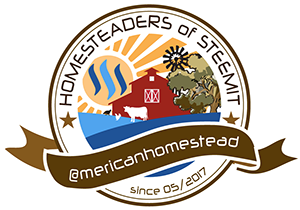
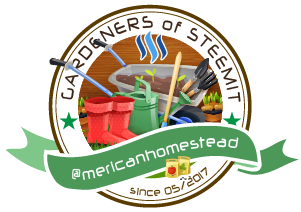

Sharing this to twitter for others to follow along with!
I've done shiitake plugs in tree stumps, but have never done the bags. Interested in seeing how it goes.
We watched the tutorial video - really interesting idea. I hope you get lots and lots of mushrooms! @ironshield
I look forward to part 2. We tried to grow some mushrooms from a bag like you shared which we picked up during a farm tour. Unfortunately it went bad and we haven't tried again. I am curious as to how these methods work, perhaps it will embolden us to try once again.
@mericanhomestead It is a cool way to make mushroom plants. This is the first time I've seen such a thing ... Hopefully it works.
I have already begun on the shitake plugs, but I will keep this in mind! Looks interesting, especially the three month production estimate. :P
Can't wait to see how it comes out. Let's hope your axenic culture technique is up to snuff. Good luck.
cotton balls in pvc rings.... sure beats paying $$$ for those special filter-bags
Fingers crossed, im interested to see your results from this too @mericanhomestead 😊
This is great I have seen all the controlled environment mushrooms and always thought there has to be a way to grow them easier. I have read that people grow oyster mushrooms in their worm bins because the conditions are idea but it is also ideal for bacteria and other fungus. Will be interested to follow this and see how all your attempts work out. Thanks for the info.
I'm interested to see how this project turns out. Seems like a great idea.
Where do you get your fungus?